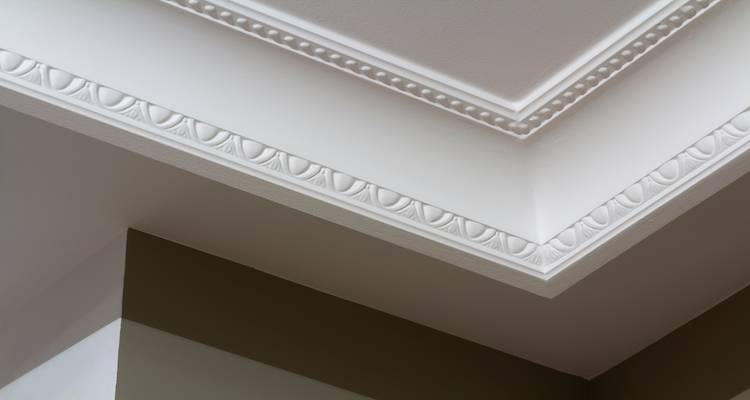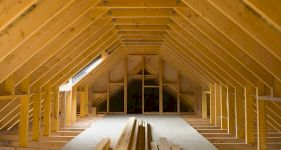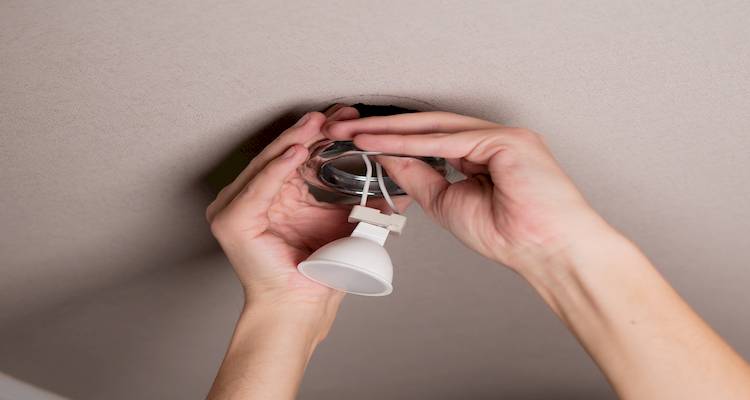Painting Skirting Board Cost
- The average cost of painting skirting boards is around £200.
- The job will take approximately 1 day to complete.
- A complete skirting board paint pricing breakdown, including the best paint for skirting boards.
- How long the job should approximately take, and an idea of other jobs you can get done at the same time.
- How to find and hire a local painter and decorator.
Wondering if there's a special type of skirting board paint?
You're in the right place. To get the best finish on your skirting boards, you should use a gloss, satinwood, or eggshell paint - regular emulsion isn't suitable as it's not durable enough to withstand scuff marks.
Skirting boards, window sills, and door frames are often neglected when decorating, but freshening them up can make a world of difference in your home.
So, what's the cost of painting skirting boards?
On average, you're looking at paying £200 to have your skirting boards refreshed. This guide will cover everything you need to know about painting skirting boards, including supply and additional costs, and how to find and hire a local decorator.
Want to get a quote for this job now?
Use MyJobQuote to get free, no obligation quotes from painters and decorators near you. It's fast, easy, and connects you with local professionals.
Want to find out more before you start getting quotes?
Read our full guide below...

£200
Table of Contents
- How Much Does Painting Skirting Boards Cost?
- Supply Only Costs
- Labour Costs and Timescales
- Additional Costs
- Cost Factors of Painting Skirting Boards
- Should I Paint My Skirting Boards, or Replace My Skirting Boards?
- What's Involved in Painting Skirting Boards?
- Can I Paint Skirting Boards Myself?
- Hiring Contractors to Paint Skirting Boards Checklist
- FAQs
How Much Does Painting Skirting Boards Cost?
Looking for the right paint for skirting boards?
Painting skirting boards can be a tricky job - especially when there are freshly painted or wallpapered walls to avoid. While the materials may be fairly inexpensive, painting still takes a lot of time, care, and attention.
On average, the cost of painting skirting boards is around £200 for a standard 3m x 3m room, with materials costing £50, and labour accounting for the remaining £150. The work shouldn’t take much longer than 1 or 2 days, depending on the complexity and size of the job.

Throughout this skirting board paint guide, we'll explore different factors to give you a better idea of how much you’re likely to pay for this job, helping you make cost-effective decisions.
Can you tell the difference between MDF and wood skirting boards once they're painted?
Painting Skirting Prices
| Job Description | Average Cost | Duration |
|---|---|---|
| Glossing of Skirting Boards in Standard 3mx3m Room | £200 | 1 Day |
| Restoration and Glossing Skirting Boards in Standard 3mx3m Room | £300 | 1 Day |
| Glossing of Skirting Boards and Window sills in Standard 3mx3m Room | £500 | 1 – 2 Days |
| Glossing of Skirting Boards, Window sills and Window Frames in Standard 3mx3m Room | £700 | 1 – 2 Days |
Supply Only Costs
Skirting board paint isn't too expensive - but when you have a large area to cover, the costs can quickly build up.

Skirting board paint usually costs around £18 to £22 per litre, whereas varnish is a little more expensive at around £25 to £30 per litre.
When painting skirting boards, you want to make sure your paint is either:
- Gloss
- Satinwood
- Eggshell
You can also get varnishes instead of paints, which will stain the wood a different colour whilst maintaining the design of the wood. This is a good option if you have paid for premium wood for skirting boards with a distinctive and natural-looking design.
Using regular emulsion won't give you the best results as it won't be durable enough to withstand scuffs from shoes, vacuums, or furniture that bumps up against the edge.
You need a durable paint that's more resistant to marks, otherwise, you'll end up re-painting your boards far sooner than necessary.
Labour Costs and Timescales
The majority of skirting board painting costs are the labour costs, which account for about 75% of the overall price. This is because painting skirting boards is labour-intensive, which adds time to the job.
So, even if skirting board painting seems like a quick, simple, and straightforward job, it really isn’t.
You will pay different rates for labour in different areas of the UK, based predominantly on the cost of living in the area. This means you'll pay far more for a painter and decorator in London than you would in Bradford, as the cost of living is much higher in London. The higher population density means there is more competition for traders, allowing them to charge higher fees.
The average day rate for a painter is around £175, with this rising in big cities like London and Manchester.
I want to paint my skirting the same as my ceiling and walls. I have been told I can prime the skirting, then paint with matt paint, and finish with a sealer. Is this OK to do?
Additional Costs
With your skirting boards freshly painted, other areas of your home might appear less polished than they previously did. Here's what you should keep in mind if you want to give your home a complete decorative overhaul:
Painting a Room
A common pairing is refreshing your room's walls along with your skirting boards. Painting a room costs around £400 to have a standard-sized room of 3m by 3m painted with 2 coats of emulsion.

The larger the room, the higher the cost, with a 30m² space costing £750 to £990.
Painting a Staircase
If you want to colour-wash your home, painting your staircase can create a cohesive floor-to-ceiling look. Painting a staircase costs £400 on average, including the bannisters and spindles.
Adding Skirting Board Heating
If you're removing and replacing your skirting boards, you may want to install skirting board heating. The cost to install skirting board heating is around £400 to £600, but the actual price will depend on the room's size and the difficulty of the job.
Cost Factors of Painting Skirting Boards
Let's take a look at what impacts the cost of painting skirting boards:
Size of Room
A cost factor you can't change is the size of your room. The larger the area, the more you'll pay.
To cut down your costs on larger rooms, you can do some prep work yourself to save on labour fees, buy your paint during seasonal sale periods to take advantage of lower material costs, or consider painting the skirting boards yourself if you have the time.

Location
Another non-negotiable relates to your geographical location. If you live in a big city where the cost of living is high, you'll pay more for labour than in other areas of the UK, such as the north, where demand is typically lower.
However, in low-demand areas, you might be able to negotiate a lower price as the customer base is far smaller than in a large city, so it's worth discussing this with your contractor.
Paint Quality
The best paint for skirting boards can be expensive, especially if you have a large room. While the price may seem small per tin or tub, if you need a lot of the varnish or paint to cover many rooms, this can quickly add up!
I have solid pine door frames, architrave, and skirting. They have knots in the pine - what's the easiest way of covering them, and then staining them?
Should I Paint My Skirting Boards, or Replace My Skirting Boards?
To answer this, you should ask yourself the following:
- How damaged are your skirting boards? You should replace your skirting boards if you're missing full stretches, have deep chips or grooves, or if the boards have water damage from flooding, burst pipes, or damp.
- Do you like the style of your existing skirting boards? If your skirting boards are in good condition and you still like the style, you can paint your skirting boards for a cost-effective aesthetic change, rather than ripping them out and replacing them.
To compare the costs of both options:
- Replacing skirting boards costs £250 for an average-sized room.
- Painting skirting boards costs £200 for an average-sized room.
Painting your skirting boards is much less invasive if your boards are still in good condition and just need freshening up with a new coat of paint.
However, if they've suffered extensive damage, your best choice is to replace them to restore the function and prevent further damage from happening.
"I have soil/mud at the brickwork outside my living room wall, and inside, the wall has cracked along the skirting board, and the floor appears to have dropped. Is this a structural issue?"
What's Involved in Painting Skirting Boards?
Wondering how to gloss skirting boards?
Painting skirting boards can be a time-consuming job - even before you pick up the paintbrush. Once your room is cleared of furniture, here's what you'll need to do to prep your skirting boards for painting:
- Sand the skirting boards with 180-grit sandpaper to prepare the surface. This will help the paint or varnish adhere.
- Vacuum the dust up before you start painting to prevent it from mixing with the paint and ruining the finish.
- Clean the skirting boards with a slightly damp sponge to remove any dust, and wait for them to dry.
- Next, cover the wall above the skirting boards and the floor beneath them with masking tape to prevent any varnish or paint from being accidentally applied.
- Apply primer to the skirting boards.
Once your prep work is finished, you can move on to painting your skirting boards:
- Apply the paint, brushing in one direction to ensure a consistent look.
- Leave for 24 hours to dry before applying a second coat. If there are any imperfections from the first coat, lightly scrub them away with sandpaper, removing any dust before painting again.
- Apply the second coat, and leave for a further 24 hours to dry fully.
Can I Paint Skirting Boards Myself?
Painting skirting boards can be tedious and tricky as you need to be meticulous with the accuracy, but a DIY job is still possible.

If you want to paint your skirting boards yourself, you should bear the following in mind:
- Remember to protect your floors from the paint or varnish, covering with a dust sheet.
- Take time to prep your skirting boards for best results, cleaning beforehand to remove dust and dirt, removing the old paint, filling in imperfections, sanding, and priming before painting.
- Paint in one direction so your strokes are consistent.
- Allow the paint or varnish to dry in a well-ventilated room for 24 hours between coats.
Hiring Contractors to Paint Skirting Boards Checklist
There are some things to keep in mind when hiring a painter or decorator to paint your skirting boards - here's what you need to know:
- Get at least 3 quotes from different traders to compare their costs and find a fair price.
- Ask for an itemised quote so you can see what's included in your quote and what isn't.
- Take a look at the contractor's previous work, looking at photos or videos of their past projects to get an idea of their quality.
- Read through the contractor's customer reviews, paying attention to comments on poor timekeeping, messiness on site, or bad work ethic.
- Check the contractor has relevant insurance before agreeing to work with them.
FAQs
What is the best paint for skirting boards?
Skirting-board-specific paint, such as gloss, satinwood, or eggshell finishes, are the best options when it comes to painting skirting boards.
How do you avoid getting paint on the wall when painting skirting boards?
To avoid paint splashes, taping the walls with masking tape is an easy and effective way to protect your walls and fittings while painting.
Why do you need to sandpaper skirting boards before painting?
Sandpapering before painting skirting boards helps to remove any imperfections on the skirting board, as well as removing any previous finishes that may still be on the board, giving a cleaner result once re-painted.
Can you use emulsion on skirting boards?
Emulsion is a paint designed for plaster, so this wouldn’t be an effective paint to use on wood or skirting boards as the durability won't be good enough for skirting.
What wood is used for skirting boards?
You can make skirting boards out of pretty much any wood, but the most common wood is MDF due to its versatility and value.









